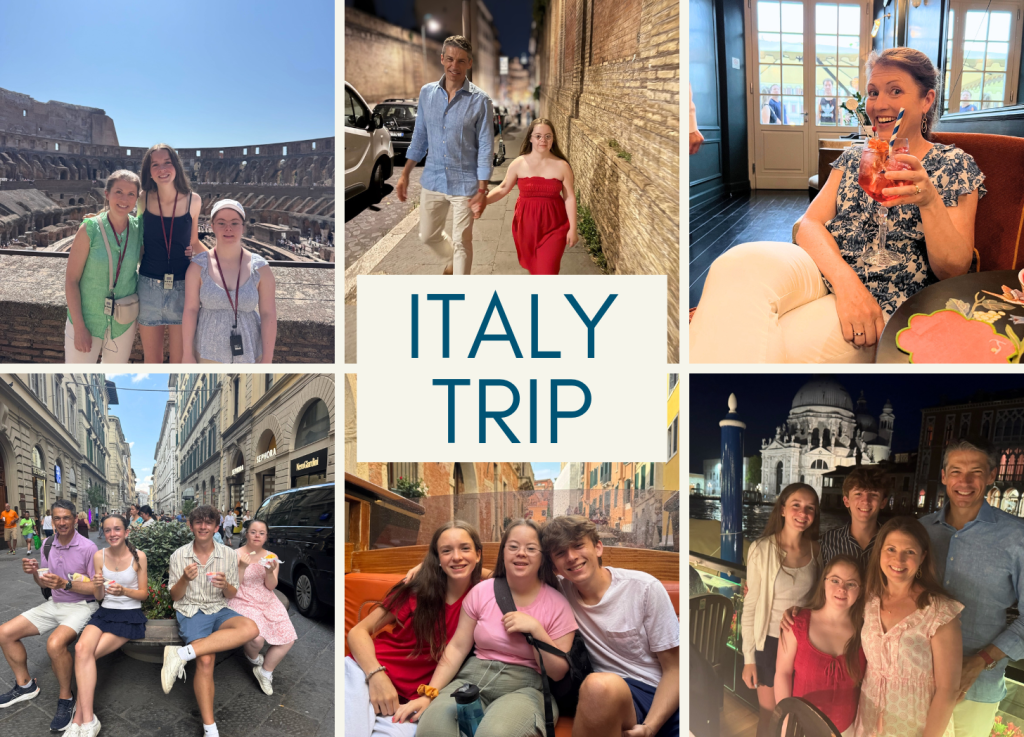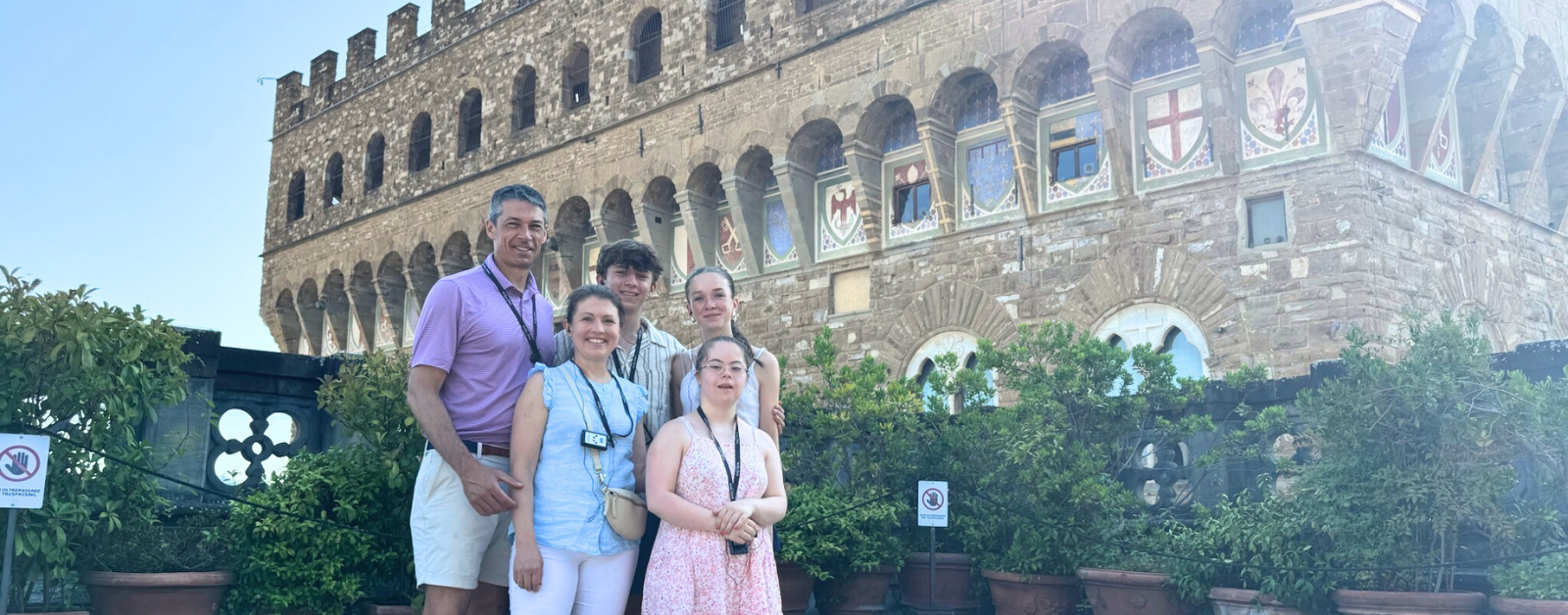We just returned from two weeks in Italy as a family. It held all the things we had hoped for. We peeked into churches with some of my favorite Caravaggio paintings and talked for a long time about Michelangelo’s David and whether or not there is such a thing as “genius.” We climbed towers and stood inside Etruscan tombs and rode in a water taxi in Venice. We ate our way through each city, but also walked nearly 20,000 steps each day. The cheese and bread and olive oil and wine and daily afternoon snack of gelato fueled us well. And we laughed together. What a gift.
But there were a few moments that interrupted the feeling of being anonymous Americans just enjoying the standard tourist attractions.

Assumptions Without Curiosity
We were standing in line for the Vatican when a man approached Peter and said, “You know, special children get in for free.” He said it loudly, and he pointed at Penny. He went on to insist that we get a refund for her ticket.
Penny immediately turned away and looked down. We were all a little taken aback by the exchange. On the one hand, we applaud policies and programs that signal welcome and support for disabled people and their families. On the other, as Penny said later, “I didn’t like that he talked about me with Dad instead of talking to me. And I didn’t like that he did it so publicly.”
As the trip progressed, there were other little indications that people didn’t see Penny in the same way that they saw Marilee and William. Those little exchanges can be summed up by the waiter who removed a wine glass from Penny’s place setting (note: she’s the 19-year-old, who legally could drink wine in Italy), but offered wine to Marilee (14) and William (16).
Our friend Katherine Wolf, co-founder of Hope Heals, talks about having “curiosity without assumptions” when it comes to disability.
Curiosity without assumptions = welcome, insight, connection
Assumptions without curiosity = stereotypes, exclusion, dehumanization
We realized at the end of the trip that many people treated Penny with “assumptions without curiosity.” She doesn’t mind people noticing that she has Down syndrome. We understand people might wonder whether she has particular needs or limitations when it comes to mobility or communication. But it’s a problem when everyone assumes that she can’t order her own dinner or speak for herself or ask questions or drink wine. Curiosity isn’t a problem, but assumptions without curiosity sting.
Assumptions without curiosity lead to stereotypes and dehumanization. Instead of seeing Penny as a particular individual, she is not really seen at all.
Renaissance Art and Curiosity

Over the course of our time in Tuscany, we looked at paintings that show the transition from the Byzantine period through the Renaissance. From flat, standard, idealized forms to the faces of real humans with emotions and distinctiveness. The Renaissance artists became curious. And what they were able to offer in return for that curiosity was creativity, beauty, and an explosion of color and insight and truth about the human soul.
We return from our trip filled with gratitude, for the time together and the experience of places with thousands of years of history and, yes, again, the gelato. But we also return especially grateful for the people—both past and present, both here and abroad—who are curious without assumptions and the ways that curiosity leads to creativity, beauty, generosity, and care.
I’d love to hear from you! When have you noticed yourself shifting from assumption to curiosity? What made the difference? Leave a comment!

Reminder! Get your free download: 30 Next Steps for Parents… for when you feel overwhelmed by all the things you could be doing to support your kids.
Let’s stay in touch. Subscribe to my newsletter to receive weekly reflections that challenge assumptions about the good life, proclaim the inherent belovedness of every human being, and envision a world of belonging where everyone matters. Follow me on Facebook, Instagram, and YouTube and subscribe to my Reimagining the Good Life podcast for conversations with guests centered around disability, faith, and culture.



